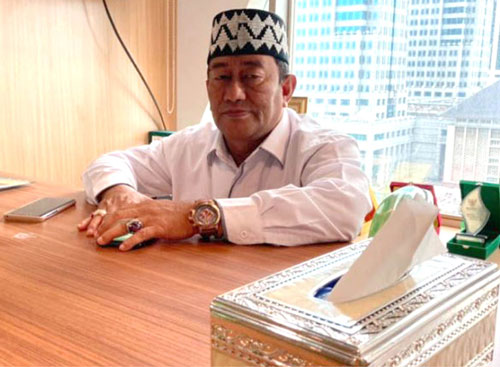Religious Affairs Ministry’s official confirmed that the ministry will collaborate with the National Counter Terrorism Agency (BNPT) and Social Affairs Ministry to monitor Islamic alms institutions’ activities and prevent misuse of alms for illicit purposes.
“Relevant regulations and Islamic laws must be observed during alms distribution to prevent funds from being misused to support terrorism-related activities,” Religious Affairs Ministry’s director for alms and waqf empowerment, Tarmizi Tohor, noted in a written statement received in Jakarta on Thursday.
The director pressed for collaboration in the monitoring process to prevent a recurrence of cases of alms funds abuse for illicit purposes as was earlier perpetrated by the Abdurrohman Bin Auf Alms Institution that was uncovered last year.
“The police investigation revealed that a total of six thousand donation boxes had been distributed by the ABA alms institutions in several regions,” Tohor noted.
Tohor affirmed that alms institutions are required to register the permit with the Religious Affairs Ministry if they intend to place donation boxes at public places, such as at convenience stores, restaurants, and major roads.
The registration is necessary to ensure financial transparency in the alms distribution process, he emphasized.
“The alms distribution must be conducted in accordance with relevant regulations and Islamic laws to prevent the abuse of funds for terrorism purposes,” Tohor emphasized.
The director confirmed that alms institutions that apply for permits must fulfil the criteria set in article 18 of Law No. 23 of 2011 on alms management by ensuring the organisation is functioning as a legal entity for educational, proselytization, and social purposes.
The alms institutions must also be a not-for-profit institution, have a coherent alms empowerment programme, and must consent to undergo a Sharia financial audit, he added.
“In essence, alms institutions must have a licence to ensure their professionalism,” Tohor remarked.
Meanwhile, the ministry’s alms institution accreditation and Sharia audit sub-directorate head Muhibuddin clarified that the obligation for activity permits is not a government intervention to alms management activities but is instead intended to boost financial accountability and governance.— ANTARA










